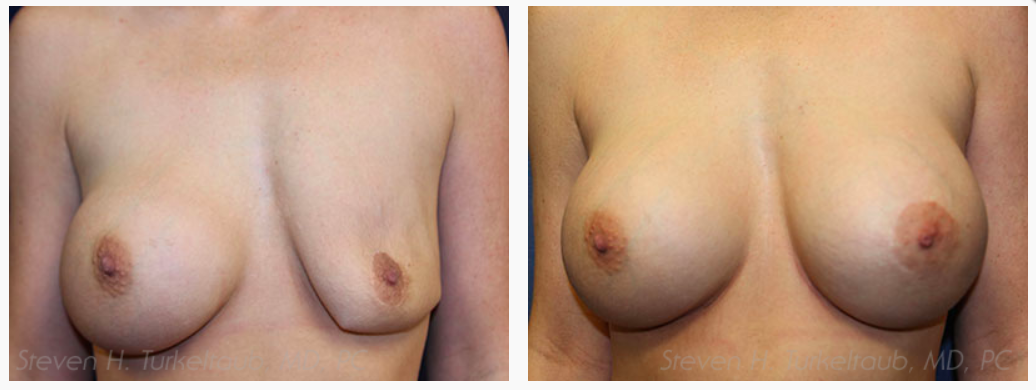Home|Blog | Identify a Ruptured Implant
Identify a Ruptured Implant
Breast implants are generally extremely durable and can last for a long period of time, though not necessarily forever. Despite their resistance to degradation, given enough time they may lose their integrity and need to be replaced or removed. Trauma can also disrupt their integrity.
Implant rupture occurs when the silicone shell of the implant develops a tear, separation, or a hole that allows its inner contents to escape into the body. Rupture is one of the most well-known and frequent complications associated with breast implants. Any implant, whether saline or silicone, does have an inherent risk of this occurring at some point in time. Therefore, it is important to know how to identify such a loss of implant integrity.

What Causes Implant Rupture?
Breast implants can rupture due to:
- Trauma or intense pressure on the breasts
- Natural aging of the implant
- Capsular contracture
- Damage to the implant during surgery
- Over- or under-filling of a saline implant
- Compression during breast exams such as mammograms (usually occurs only when implants are old)
Identifying a Saline Implant Rupture
Saline implants consist of an outer silicone shell that is ultimately filled with sterile saline during surgery. It is essentially a medical grade silicone balloon filled with salt water. When a saline implant ruptures, most of the solution usually leaves it fairly rapidly and is absorbed by the body, resulting in a rapid decrease in implant and breast size over a period of a few hours. Most of the time this volume decrease is quite noticeable.
Identifying a Silicone Implant Rupture
Silicone implants are constructed with a strong outer shell of silicone rubber that surrounds a cohesive silicone gel filling that may have a consistency almost like that of taffy. Consequently, not only is there no volume reduction, but quite often there is absolutely no change in implant shape—even after a period of a few years. Since a silicone implant does not deflate the way saline implants do, most silicone implant ruptures cannot be detected visually and, therefore, may need to be identified with an MRI.
What Is Your Next Step?
Fortunately, implant ruptures are generally not considered to be dangerous to your health and do not increase your risk of breast cancer. However, especially in the case of silicone implants, if they are known to have lost their integrity it is generally recommended that they are removed. Whether or not new implants are placed is a personal decision that each patient needs to make.
For more information on this subject or to set up your consultation, contact Dr. Turkeltaub’s office by calling (480) 451-3000 or by filling out our online contact form.
